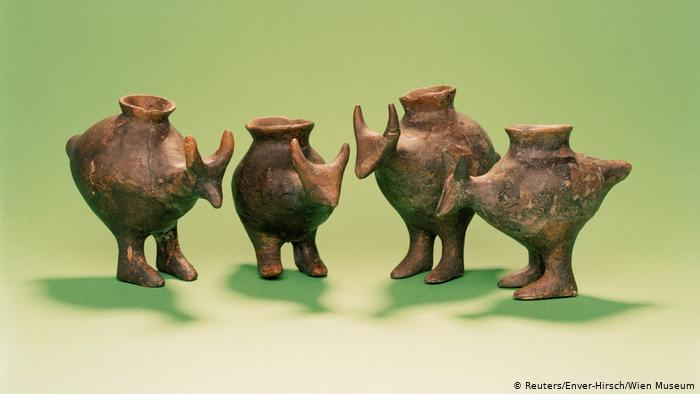Prehistoric ceramic vessels were most likely used as baby bottles to feed infants animal milk, archaeologists confirmed Wednesday in one of the first examples ever discovered of how prehistoric people fed infants.
The objects, some of which were shaped into animal forms, were unearthed from infant burial grounds dating back to the Bronze and Iron Age located in modern-day Bavaria in southeast Germany.
The study, which was published in the scientific journal Nature, found "evidence of the foodstuffs that were used to either feed or wean prehistoric infants," which "confirm the importance of milk from domesticated animals" for prehistoric groups of humans.
Archaeologists say little is known about which foods infants consumed in prehistoric times.
Researchers said the oldest of the three vessels examined in the study was made during the Bronze Age between 2,800 and 3,200 years ago.
"I think this has provided us the first direct evidence of what foods babies were eating or being weaned on to in prehistory," said Julie Dunne, the lead author of the study and a biomolecular archaeologist at the University of Bristol in Britain.
"I think this shows us the love and care these prehistoric people had for their babies."
'Incredibly cute'
The bowl-like objects had narrow spouts and were small enough to fit into a baby's hands. Some were shaped like animal heads with horns, long ears and feet.
"I find them incredibly cute. And prehistoric people may have thought so," archaeologist Katharina Rebay-Salisbury of the Austrian Academy of Sciences, told Reuters news agency.
"They would certainly have a dual function of entertaining the children just like modern stuffed animals," she added.
Read more: Nuremberg archaeologists restore rare Bronze Age chariot burial artifacts
Rebay-Salisbury added that life was difficult in Europe during the Bronze Age and the Iron Age, with many people suffering from famine, disease and unhygienic living conditions.
An estimated third of all newborns died before their first birthday and only about half of children reached adulthood, Rebay-Salisbury said.
DW
More about: #research
















































